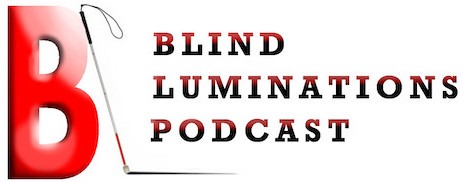(Note: This blog entry was originally posted on Jan’s website after coming across this article from the New York Times.)
To Whom It May Concern,
This is not the first time anyone has asked if having a disability means being a “burden” in a relationship. I believe such questions require or at least deserve honesty, even if uncomfortable at times.
Let me begin by saying “yes” a disability can be a burden, in the sense that any aspect of a human being may be burdensome in a relationship. There is a lovely idealistic notion that everyone has a soulmate; a perfect person that completes another person like one soul in two bodies. The reality is that as compatible as people can get, it is never a perfect fit. There will always be an aspect or two that the other person will have to accept and accommodate. They are not deal-breakers, but they exist all the same.
I often liken disability to someone who hates country music with a fiery passion. With visual disabilities, the person is wearing a sign that proudly proclaims they hate country music, can’t stand a second of it or pop songs that sound remotely like country or from country artists. The sign makes people think they suddenly need to make a decision: proceed to meet the person or turn away. Now some people will go ahead, but others can get scared off. They aren’t terrible people– most folks aren’t. That’s sort of the problem: they don’t think they can deal with what the sign suggests, and they figure it’s better not to suggest otherwise and disappoint later on.
The catch, of course, is that anyone can hate country music, but if they’re not wearing the sign, people are more willing to take the risk. It’s an odd thing. The sign makes them feel like an answer and commitment are required right away. It never is. Sign on or off.
The reason is simple: everything is about accommodation. Someone hates country music. It doesn’t mean everyone else has to. It doesn’t mean a person can’t listen to country music at other times or find ways to accommodate the situation. Whether the sign is on from the start or put on years later, everyone can find ways to accommodate it. Same with disabilities or allergies or hating reality tv or loving bagpipes or thousands of other aspects of what helps make up what and who people are.
Is disability a reason to avoid a relationship? Well, is a peanut allergy a reason to avoid a relationship? Is having the thermostat set to a certain temperature a reason to avoid a relationship? Is a job a reason to avoid a relationship?
It all comes down to what people are willing to accommodate. Some people wouldn’t be able to marry a volunteer firefighter. Others can marry someone how has to travel a lot. It must be remembered that none of these require a quick decision. There is nothing lost by getting to know others and ourselves, what we actually need in a partner or even friend. I have heard the statement “I could never do that” many times by people who could, but have never been in the situation to prove themselves wrong.
Many times with disabilities, the sign -so to speak- can be clear from early on. The reality is that some just need time to be written. Aging can reduce hearing, eyesight, mobility, and more. Sometimes a surprise illness or accident does the same. Those signs suddenly pop up, but those are simply new aspects.
My grandpa absolutely hated needles. He could not stand the sight of them. Yet, when my grandma got diagnosed with diabetes, he was the one who gave the insulin shots. Perhaps if he had met her with a sign saying she’d one day need injections, he’d have been leery. When it did happen, all those decades later, he accommodated the situation because that’s what happens in good relationships. Accept the reality and deal with it.
No one should pretend that it’s easy, of course. There isn’t a wife or husband I’ve ever met that didn’t need even a short break from their spouse, whether it was shopping or a night out with the guys or what have you. The two people in a relationship are not perfect fits, and, more importantly, are still two individuals. Every person needs time to be themselves alone or away from whomever they spend most of their time with. It’s not an insult to the relationship nor to the partner. Relationships are about balancing dependence, in a sense. Those breaks are needed, because it isn’t easy accommodating things all the time and still being oneself. I doubt my grandpa suddenly loved needles, after all.
So, yes, a disability is a burden on a relationship, if an allergy is a burden, if loving Hanson and needing to go to all their concerts is a burden, if insisting on only buying Charmin is a burden, if hating the colour purple is a burden… the list goes on. I mean, the definition of burden (as applied to being a burden on someone) is causing difficulty or worry or hard work. It’s doubtful that it’s been easy for Marc to listen to all the music I do or any many other aspects of me, but that’s part of a relationship. There are burdens, in a sense, but couples accommodate them as best as possible and then relationships work.
Sincerely,
J.R.
Give Us Your Feedback
What are your experiences with this kind of situation? Whether you’re someone with a disability, have a relationship with a disabled person or is with a partner despite something that makes it challenging at times, let us know in a comment below! You can also e-mail us directly through our contact form.
